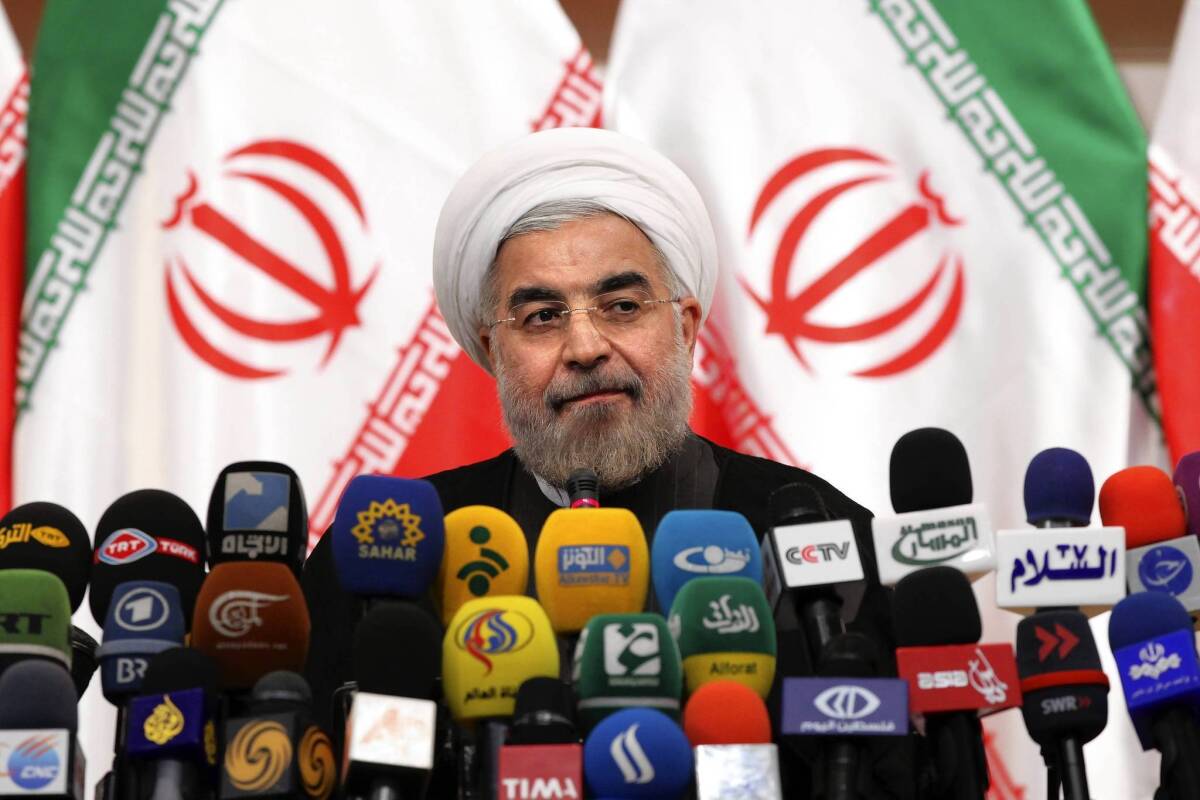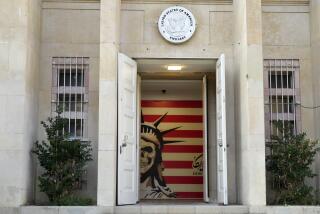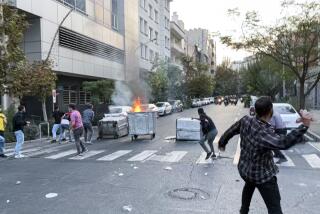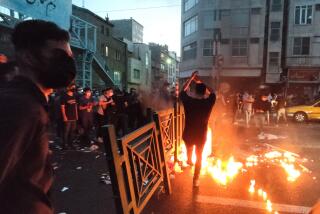Iran president-elect strikes conciliatory tone toward U.S.

TEHRAN — Iran’s president-elect called his nation’s strained relations with the United States “an old wound” that would take time to heal but signaled Monday that Tehran was ready to work to reduce tensions with Washington and the West.
In his first news conference since his surprising victory in Friday’s election, Hassan Rowhani, a moderate and longtime stalwart of the Iranian government, appeared poised and at ease, addressing a wide range of domestic and international issues from behind a bank of microphones.
Rowhani, seen as the consensus candidate of moderates and reformers, received more than half the vote in a field of six candidates. Some observers have expressed hope that his presidency could lead to a social transformation in Iran.
None of his comments appeared to break new ground, but the conciliatory tone was in contrast to the polemical broadsides associated with outgoing President Mahmoud Ahmadinejad.
“It is an old wound that needs to be … healed,” Rowhani said of U.S.-Iranian relations, on the skids since the 1979 Islamic Revolution that overthrew the U.S.-backed monarch.
Rowhani did not rule out some kind of reconciliation with the U.S., which the late Ayatollah Ruhollah Khomeini, the revolution’s leader, described as the “Great Satan,” a term the president-elect avoided.
“The new government feels that a new opportunity arises to have dialogue with the world,” Rowhani told reporters.
But he set conditions for direct talks with Washington, including a U.S. guarantee not to meddle in Iran’s internal affairs; a recognition of Iran’s rights, including its ability to pursue nuclear power; and a commitment to put aside “bullying” policies toward Iran.
“Wisdom tells us that both nations need to think more about the future and try to find solutions to past issues,” Rowhani said.
The White House has called Rowhani’s election a “potentially hopeful sign,” though U.S. government officials are still assessing any change in policy. In an interview broadcast Monday with PBS talk show host Charlie Rose, President Obama said the U.S. wouldn’t lift sanctions until Iran took “significant steps” to show it was not pursuing nuclear weapons.
Rowhani, buoyed by his surprise landslide victory, vowed to fix the nation’s battered economy, repair its global relations and work toward ending international sanctions on Iran, which he described as cruel and excessive. Iranian officials have long said their controversial nuclear program is exclusively for peaceful purposes, despite U.S. and Israeli suspicions that it is meant to give the Islamic Republic nuclear weapons capability.
“Of course, our nuclear plans are fully transparent, but we are ready to show more transparency,” said Rowhani, 64, a cleric and former parliament member. “God willing, we will reduce sanctions.”
Rowhani is also a former chief nuclear negotiator with European nations and agreed to suspend Iranian enrichment of uranium for almost two years, from 2004 to 2006.
He said Iran was not willing to suspend nuclear enrichment, a process associated with both peaceful and military use of uranium, but said it was ready to negotiate in good faith about its nuclear program.
On the contentious issue of Syria’s raging civil war, Rowhani said foreign nations should not interfere.
“Resolving the Syria problem is up to the people of Syria,” he said. The government of Syrian President Bashar Assad is a key ally of Iran.
U.S. officials have accused Tehran of providing military and logistics aid to Assad’s government during the more than 2-year-old civil war. Washington has provided aid to rebels seeking to oust Assad.
Rowhani vowed to follow the path of “moderation and justice, not extremism.”
Special correspondent Mostaghim reported from Tehran and Times staff writer McDonnell from Beirut. Times staff writer Paul Richter in Washington contributed to this report.
More to Read
Start your day right
Sign up for Essential California for news, features and recommendations from the L.A. Times and beyond in your inbox six days a week.
You may occasionally receive promotional content from the Los Angeles Times.






